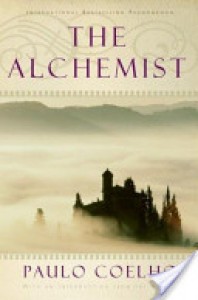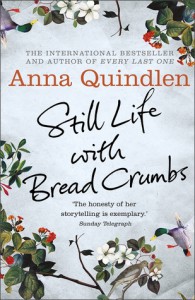Review: Phantoms on the Bookshelves by Jaques Bonnet

There's a very fine line between bibliophilia and book hoarding and at time it's difficult to tell which side of the line the people described in this book fall. Ultimately, the book is an ode to a dying age of literature where the print novel reigned supreme, a time before the digital revolution. As someone who wasn't quite present for the period this book was describing, at least not in the capacity that the author was, I felt separated from the wave of nostalgia and merely found the book compelling as a caricature of sorts.
I found the conception in this book of knowledge versus property to be one of the most interesting aspects of the works as a whole. The introduction in my edition by James Salter states the divide as "[t]he physical possession of a book may become of little significance. Access will be what matters..." This entire work can be seen as a question about the changing face of reading. While the author seems interested in the ways that the internet has affected the literary world, both for ability to find rare titles and for the increase in overall production of literature, his interest feels almost mournful of the lost ways of reading where one had to hunt for books that would complete a set. The irony that I read this book in an ebook format wasn't lost on me.
While this book gives a beautiful depiction of the way the author grew into the lover of books that he is today and shows a glimpse of a society that is perhaps fading from the contemporary world, it also acts as an argument that books have value inherently, beyond the knowledge, information, or stories they may contain. At multiple instances the author makes note of the many books he owns but has never touched since shelving them upon purchase. Ultimately, this is what drew me away from the book because it made it feel like an ode to a love of books, not to a love of reading.
Review: The Alchemist by Paulo Coelho

This book is primarily a detailing of a philosophy via a plot rather than a book focused on the story itself. The author has a carefully constructed worldview that is completely evident throughout the entire story, which is appropriate given that the story of the book is a metaphor for the experience of reading the book itself.
Over the course of the book, the main character goes on a journey of self discovery after having a dream about finding treasure by the great pyramids in Egypt. Rather than being a direct path from points A to B, his journey acts as a means for him to acquire knowledge about the universe, knowledge that is inherent to all of creation and is within all of us from the start were we to listen. For this reason, the main character isn't gaining knowledge over the course of the book so much as he is gaining the ability to recognize what he already knows about the world. The author seems to use the book to suppose that this is true within our world, too. We already have the knowledge within us that the book discusses externally, we merely have to learn to accept it. In the conclusion of the book, it turns out that the treasure that the main character was looking for was in the location where he first had his dream, before he had even begun his journey. By returning to the start to find what he'd been searching for, the author reinforces the idea that all the knowledge gained over the course of his journey was within the main character, as well as the reader, all throughout and this has just been a means of bringing it to the surface and reinforcing it. On the other hand, he never could have found his treasure without the knowledge being brought out in him by the journey, so it doesn't negate the necessity of the act even if he returned to the start.
Altogether the book feels compelling. The philosophy the author expresses is a fascinating one, if not one that I would ever subscribe to. One interesting aspect of the novel is how the vast majority of characters are unnamed. They're perpetually referred to as the Englishman or the Alchemist or something of that variety. The only exception to this rule that I can recall is Fatima, who is also one of only two or three women in the novel. By removing names from the characters, they're more free to act as wider aspects of humanity, furthering the book's universalist vision that we aren't separated by things such as family, but are connected to one another inherently and are only separated by what our purpose in life is. The author finds a way to incorporate his message into every aspect very well, weaving together the narrative so that it all compliments each other.
Review: The Guernsey Literary and Potato Peel Pie Society by Mary Ann Shaffer
Perhaps this review is a bit biased because I feel as if I've just read the same book twice. I started this book just after finishing Still Life with Bread Crumbs, a book I didn't much care for. Unfortunately, this book seemed like the exact same novel, set in a separate location and time period. Both novels revolve around a woman who lives in a city who has just hit a slump of some kind in her art career, in this case writers block about the topic for the main character's second book, in the other it was a decrease in recognition and respect for her photography. Additionally, for one reason or another the main character has been displaced from her home (it was destroyed during the London Blitz in this novel and in Still Life the main could no longer afford the rent on her apartment.) As a result of this de facto homelessness and in an effort to repair her artistic troubles, the main character ventures out of the city and into a rural area where she meets locals who seem happier with their more simplistic lives. From the locals she learns to have a new lease on life, in the process finding a charge (a child or a dog) from a woman who has died and a beau who was somehow tied to the dead woman. Her art that comes as a result of her new home is critically acclaimed, but she doesn't return to her city life, instead she stays with her new friends who truly understand life.
This all feels like neo-Romantic bullshit, as I said in my review of Still Life. I hated it the first time and having to go through it twice in a row just made the whole process that much more painful. I know I shouldn't have picked up this book to begin with given my typical aversion to anything set around WWII, but I had such high hopes since it was an epistolary novel, something I normally adore. Even that wasn't enough to save this, though, and I felt the whole thing was excruciating. All my criticism of Still Life is still there with none of the benefit of the main character being compelling. I will say, though, that I was pleased to see a depiction of a queer character in a period novel. That was quite nice.
Review: Still Life with Bread Crumbs by Anna Quindlen

This book is a summary of all the things I dislike about modern day Romanticism. It fetishizes nature and makes out those who live in rural areas to be a less racist noble savage. While I appreciate the depiction of older women, especially older women artists that made their own way and explore gender roles in their work, the rest of the novel didn't work for me.
Review: Gone Girl by Gillian Flynn

This book is perfect. This book is absolutely perfect. The depiction of amoral character putting on a pretense of morality, or, rather, morality as your ability to put on a show of normalcy, is amazing. The only conception of evil within this novel is the inability to fit in to a norm of society, to fall out of line with the expectation of others. One of my favorite things to read is a couple on opposing sides of a moral issue and this novel did that one over. Rather than have two people on the opposite ends of the spectrum, it had two chaotic, amoral forces toying with one another. This wasn't a battle of good and evil, it was a chess match.
I also loved the way the book showed differing perceptions of the same events. No matter how similarly two people may act, the world inside their heads are inherently divided.
 1
1
Review: Red Dragon by Thomas Harris

I'm so happy that I reread this book. Pretty much as soon as I read the last page I was thinking of starting over again. Having reread this book with more of an acquaintance with William Blake's work I feel I actually got more out of the story than I had previously, seeing more connection between Blake and the book's narrative style. Also, I feel that I can understand Dolarhyde more now that I have a better handle on the Marriage of Heaven and Hell. I'm still in denial about Freddy and super in love with Reba, nothing's changed with either of those.
Harris really incorporates the idea of a Christian, religious horror into his conception of the genre as a whole. A book that could have become just an ordinary slasher rose above the format and became a commentary on so much more, on the very nature of family and how it relates to conception of the self. Dolarhyde's familial history along with his particular brand of violence shows the family as an element of destruction and chaos within his life which serves as a direct contrast to Graham's family which pulls him away from violence.
Review: The Necrophiliac by Gabrielle Wittkop

This is probably one of the most beautifully written books I've ever read. I was in awe of the artistry of it. That said, I still haven't decided if I can get past the topic and really endorse it to anyone. What's magnificent about this book is how it completely pulls you in to the world of the main character. His mentality is completely severed from the average one, but because of the way the author writes it still seems understandable, if not redeemable. What's interesting about the narrator is that he doesn't see himself as an immoral character. In fact, he seems to see himself as a positive force within the world, even while he at times recognizes that the world at large doesn't see him that way.
The book is written in an utterly sensual manner; there's hardly a part of the book that's not entwined with taste and smell. The world the narrator occupies is completely physical. He never seems to escape the concrete reality that surrounds him, and yet his perception of it is so vastly separated from what might be considered the average. It's interesting to see his data input versus his perception and how one meets up with that of the surrounding world while the other doesn't.







